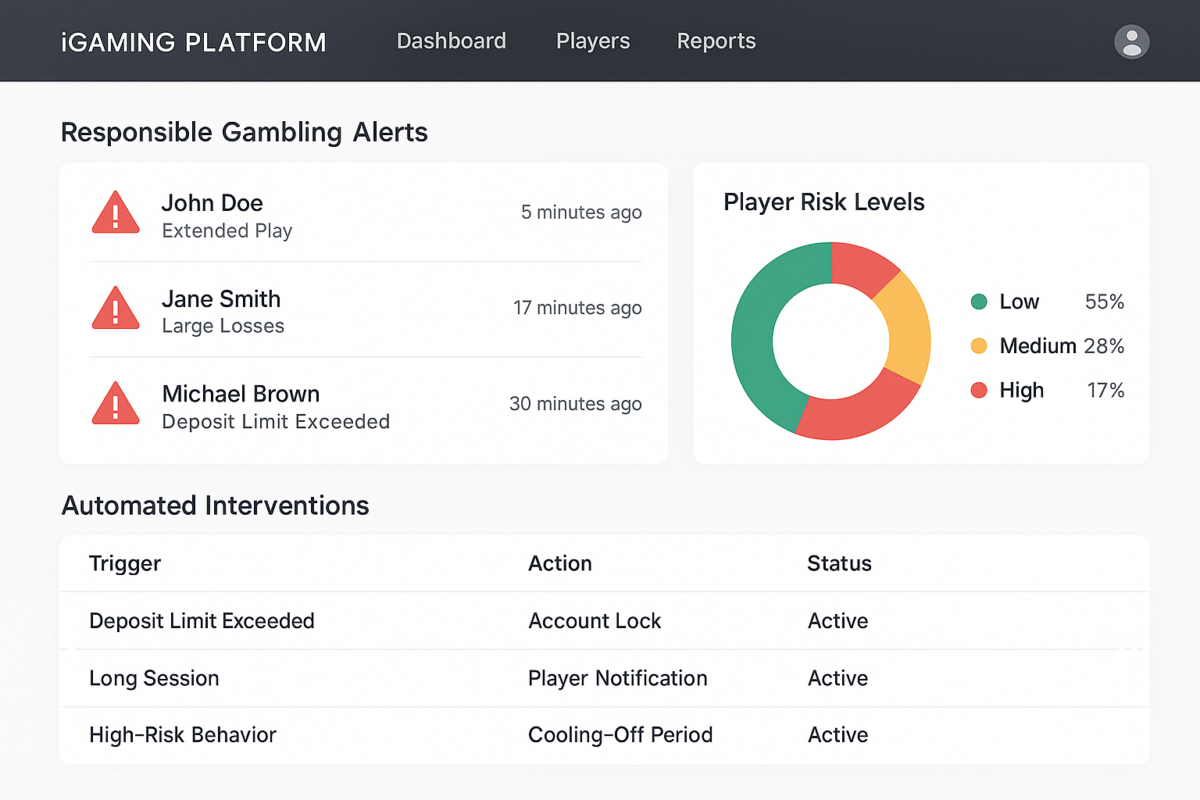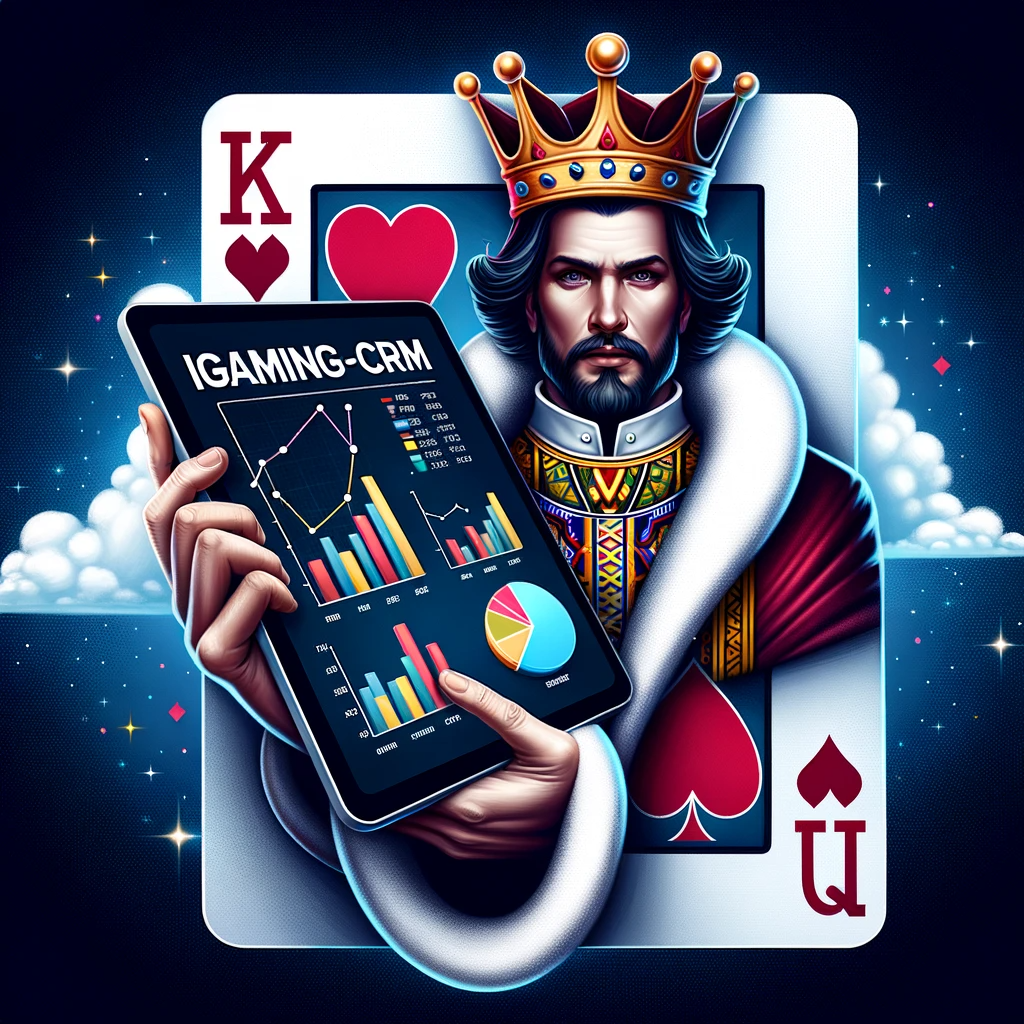Event-Triggered CRM Automation in iGaming

Introduction
In the high-speed world of iGaming, player expectations shift by the second. Generic campaigns no longer work. To keep users engaged, platforms must act instantly, triggering precise, personalized messages based on behavior. Event-triggered CRM automation enables exactly that. It empowers iGaming operators to deliver the right content at the right time, automatically. This blog explores how these CRM workflows boost retention, reduce churn, and elevate lifetime value.
What Is Event-Triggered CRM Automation?
Traditional CRM relies on scheduled messages and static segments. While useful, these methods often miss key behavioral signals. Event-triggered automation solves this by launching CRM actions in real-time, based on specific user behaviors or milestones.
For example:
- A player completes registration → triggers a welcome bonus email.
- A high roller goes inactive for 24 hours → triggers a reactivation push.
- A player hits a losing streak → triggers a responsible gambling message.
These aren’t random promotions. Instead, they respond directly to player intent and emotion, making them far more effective.
How Triggers Are Defined and Deployed
Triggers can be behavioral (actions players take), transactional (purchases or deposits), or contextual (device changes, geolocation, or time of day). Once a trigger is detected, the CRM system automatically selects a pre-set action.
Let’s say a player deposits after 10 PM and then loses three games in a row. That combination can trigger a message with tips, bonus cash, or a reminder about cooldown settings. Timing is everything, and event-triggered workflows ensure messaging matches the player’s exact context.
Furthermore, CRM tools allow customization by tier, location, and risk profile. This avoids sending the same message to all players, a mistake many platforms still make.
Boosting Engagement Through Micro-Moments
iGaming is full of micro-moments, brief windows when a user is most receptive. Event-triggered CRM helps capture these opportunities.
For example:
- A player wins a big jackpot → instant congratulatory message with leaderboard invitation.
- A user plays a new slot for the first time → tutorial or strategy tip appears within minutes.
These micro-interactions may seem minor. However, when stacked over a session or lifetime, they build stronger emotional bonds with the platform. Over time, this significantly lifts retention rates.
CRM Workflows That Actually Work
Here are a few effective workflows already deployed by top iGaming platforms:
- Abandoned Deposit Recovery
Trigger: User starts deposit but doesn’t complete it
Action: Send a reminder email within 10 minutes with assistance or incentive - Milestone Recognition
Trigger: 50th game played or 1-year membership
Action: Push notification with exclusive reward or loyalty badge - VIP Alert
Trigger: Player hits spending threshold
Action: Notify VIP host, send high-tier benefits email
By automating these journeys, brands reduce manual workload while delivering consistently relevant experiences.

Tools That Enable Real-Time Personalization
Several CRM platforms specialize in iGaming automation. These include tools like Optimove, Fast Track, and Salesforce Marketing Cloud, all of which support behavioral workflows and data integration.
Key features often include:
- Real-time event listeners
- Drag-and-drop journey builders
- Segmentation based on behavioral scoring
- Integration with games, payment gateways, and support systems
The best platforms don’t just automate, they evolve. They use past trigger data to refine journeys and adapt over time.
Avoiding Common Pitfalls in Triggered Campaigns
Even the best tech can fail without strategy. Here are some mistakes iGaming operators must avoid:
- Over-triggering: Too many messages in a short time frustrate users
- Generic responses: A poorly written auto-reply can damage trust
- Lack of testing: Without A/B tests, it’s hard to know what works
- Ignoring channel preference: Not all players want emails, SMS or in-app might be better
By monitoring campaign fatigue and respecting preferences, platforms can keep automation helpful, not annoying.
Responsible Use of Triggered Messages
Not every behavior should prompt a reward. In fact, over-rewarding can worsen risky play. CRM systems should also include safeguards for responsible gambling:
- Triggering cooldown prompts after long sessions
- Disabling bonus promotions for flagged risk players
- Escalating certain behaviors to human review
This builds a more ethical platform and prevents backlash or regulatory risk.
Measuring the Impact of Event-Triggered Workflows
To optimize CRM efforts, platforms should track performance metrics like:
- Open and click-through rates of triggered messages
- Retention lift among triggered cohorts
- Revenue per player before and after workflow rollout
- Time-to-engagement post-event
Many platforms visualize this directly in the CRM dashboard, making iteration faster and easier.

Future Trends: Smarter, Context-Aware CRM
In the coming year, expect even more contextual awareness. CRM triggers will become multi-dimensional, considering time, past behavior, device type, and even weather.
Also, look out for:
- Geo-fencing-based triggers (e.g., when players travel)
- Voice assistant integrations
- Real-time gamification feedback loops
- AI-generated content personalization
The goal is to make every message feel handcrafted, even when it’s sent by a bot.
Conclusion
Event-triggered CRM automation turns routine iGaming experiences into personalized journeys. It allows platforms to respond faster, smarter, and more empathetically. By leveraging real-time data and behavioral cues, operators can build trust, reduce churn, and drive meaningful engagement.
Call to Action
🎯 Want to build your own automated CRM workflows? Download our free playbook on event-triggered segmentation, player lifecycle paths, and micro-moment strategy.
